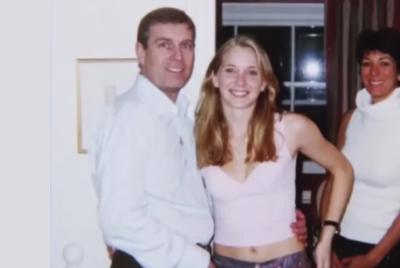'Suitcase Murders' Case Ends With Life Sentence for Mother Who Drugged and Killed Two Children
The children's remains were discovered after a storage unit was auctioned

A woman who murdered her two young children and hid their bodies in suitcases stored inside a rented Auckland facility has been sentenced to life imprisonment in New Zealand.
Hakyung Lee, a New Zealand citizen originally from South Korea, received a minimum non-parole period of 17 years after a High Court judge ruled that she had taken the lives of two 'particularly vulnerable' children and had attempted to leave the country without being held accountable.
Details of the 'Suitcase Murders' Revealed
The case, widely referred to in New Zealand as the 'suitcase murders', centred on the deaths of eight-year-old Yuna Jo and six-year-old Minu Jo.
In mid-2018, Lee mixed prescription medication into orange juice and gave it to her children before placing their bodies, clothed and wrapped in plastic bags, inside two suitcases.
She later moved the luggage, along with personal belongings, into a storage unit in Auckland and left for South Korea after changing her name.
The children's remains were not discovered until August 2022, four years after the killings, when payments on the storage unit lapsed and the contents were auctioned off.
The buyer opened the suitcases, leading to a police investigation that quickly drew international attention and resulted in Lee's extradition back to New Zealand.
Court Findings and Sentencing Decision
During the sentencing at the High Court in Auckland, Justice Geoffrey Venning described the children as 'particularly vulnerable' and said the crime involved significant planning.
Under New Zealand law, murder carries a mandatory life sentence and a minimum non-parole period of at least 10 years, but the judge imposed a longer term due to the gravity of the crime and the ages of the victims.
A jury had earlier found Lee guilty on two counts of murder after a trial lasting just over two weeks. Jurors deliberated for around three hours before returning unanimous guilty verdicts.
Defence Claims and Mental Health Background
Lee's defence team argued that she was not guilty by reason of insanity, claiming that she had spiralled mentally after the death of her husband, Ian Jo, from oesophageal cancer in 2017.
They said Lee believed at the time that killing Yuna and Minu was 'morally right' and that she had expressed intentions to take her own life and her children's lives in the months following her husband's diagnosis.
Her family told the court that Lee stopped eating and showed no willingness to continue living after her husband's death. They recounted that she made repeated suicidal statements and spent large amounts of money on holidays and luxury hotels despite declining mental health.
How the Killings Happened
The court heard that Lee gave the children nortriptyline, a medication she had been prescribed for sleep problems, mixed into orange juice.
Crown prosecutor Natalie Walker said the children became drowsy before going to sleep. Their bodies were later placed into suitcases that remained hidden inside the storage unit for years.
Impact on the Family
During the sentencing hearing, victim impact statements revealed the devastating effect of the murders on the wider family. Lee's mother questioned why her daughter had not taken her own life alone, saying: 'If she wanted to die, why did she take the innocent children with her?'
Another statement from Lee's brother-in-law described living in constant fear that the children's other grandmother, who is seriously ill, would learn what happened.
He wrote that his 'daily existence is a time bomb of fear' and added that the trauma of the murders had created a situation from which he 'can never be paroled'.
Legal Context and Community Response
The case has focused national attention on child protection and the circumstances that led to the discovery of the suitcases. Prosecutors emphasised that Lee's actions were a 'selfish act' carried out to escape the responsibilities of parenting alone.
The sentencing marks one of New Zealand's most disturbing murder cases in recent years, prompting renewed discussion about early intervention and family support systems.
© Copyright IBTimes 2025. All rights reserved.


















